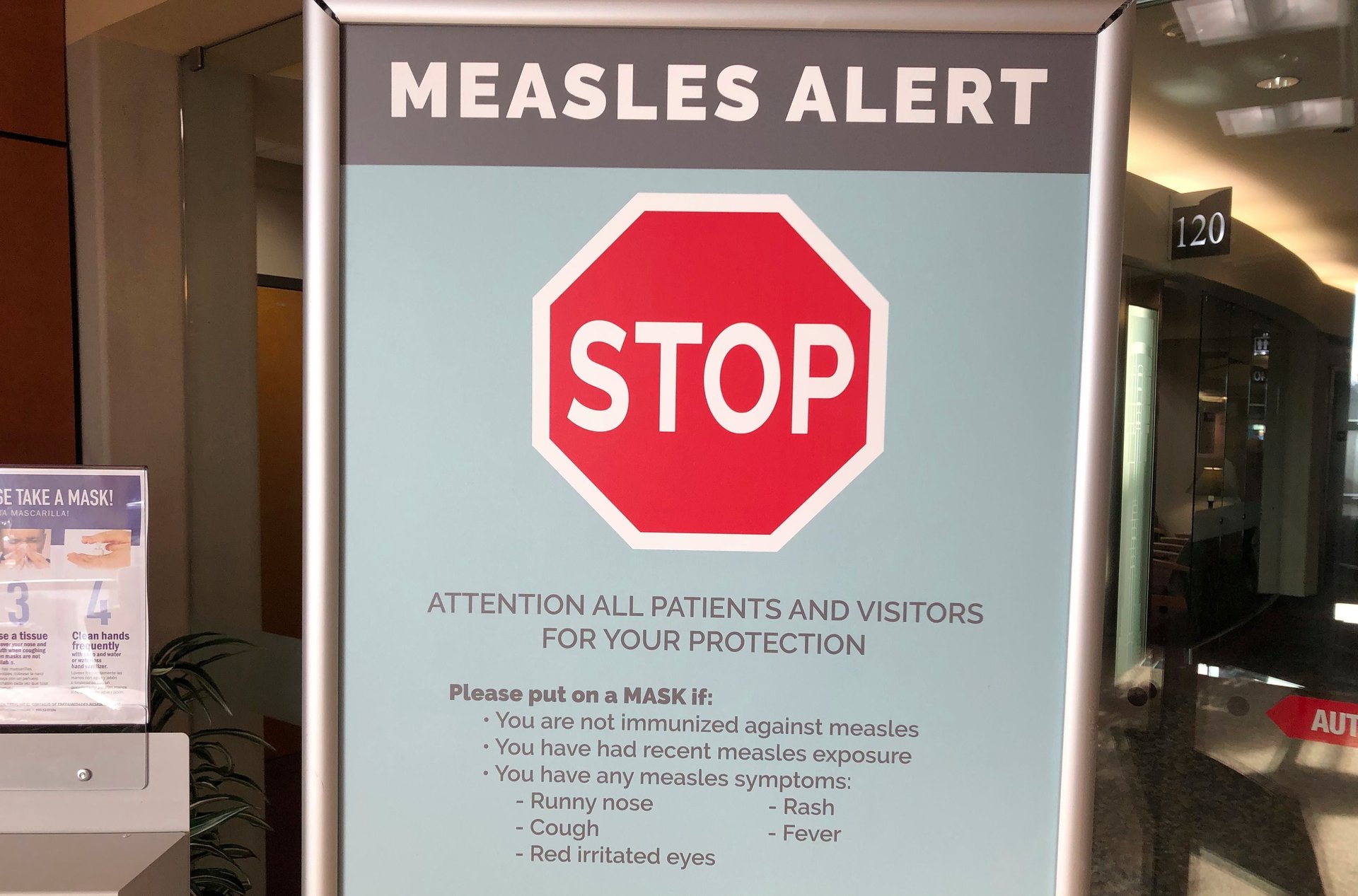An anti-vax religious group apologized for its role in a major measles outbreak in Japan
Japan is in the grip of its worst measles outbreak in a decade, with many of the cases traced to a religious group that doesn’t believe in medicine.


Japan is in the grip of its worst measles outbreak in a decade, with many of the cases traced to a religious group that doesn’t believe in medicine.
According to figures published by Japan’s health ministry on Feb. 19, as of Feb. 10, 167 people have contracted measles across 20 prefectures. Of the reported cases, 49 of them were in Mie prefecture in western Japan, followed by Osaka with 47 cases.
Measles is transmitted through droplets from an infected person’s nose or mouth. Most measles infections last about 10 days, and while many people recover from the complications, sickness can cause serious health problems, especially in young children. Infections can lead to brain swelling, meningitis, pneumonia, and liver infections.
Japanese media reported that the large number of cases in Mie can be traced to a religious organization called Kyusei Shinkyo, after a number of people were found to have contracted (link in Japanese) measles after attending a workshop held by the group in the city of Tsu late last year. According to its website, the group, founded in 1970, believes that “medicine can cause disease” and believes in treating illnesses through what it calls “the Divine Light.”
Elsewhere in Japan, some of the people with measles were suspected of having contracted the virus while overseas, including a man in Chiba who developed it after returning from the Maldives.
In late January, Kyusei Shinkyo released a statement (link in Japanese) on its website apologizing for its responsibility in the measles outbreak and said that it would pray for all those affected to recover as soon as possible and cooperate closely with health authorities to prevent the further spread of the virus. The group said that some of its members had not been vaccinated and became infected as a result, causing “disturbance” to the public. It also said it would temporarily suspend meetings and would also stop posting testimonials of “miracles” on its homepage. One such testimonial dating back to 2008, for example, details the experience of a female follower who said that abandoning medicine for the group’s “natural” treatment healed her rheumatism.
Late last year, Japan saw a major outbreak of rubella, with many of the cases recorded being men in their 30s to 50s, a group that has lower immunization rates in Japan as only girls were vaccinated between 1976 and 1989 because of the disease’s impact on fetuses. There was another such “vaccination gap” of Japanese men in 1993 to 2006.
Europe, the US (paywall), and other parts of the world have seen an uptick in the number of measles cases in the past year or so. Europe in particular saw a record number of cases in 2018. In the Philippines, over 130 people, mostly children, have died from measles since January, and more than 8,000 have fallen ill.
Health experts have pointed in part to the populations of parents who are actively choosing to not vaccinate their children as a reason for the high numbers. “[E]very person who is not immune remains vulnerable no matter where they live, and every country must keep pushing to increase coverage and close immunity gaps, even after achieving interrupted or eliminated status,” World Health Organization official Nedret Emiroglu said in a statement in August.